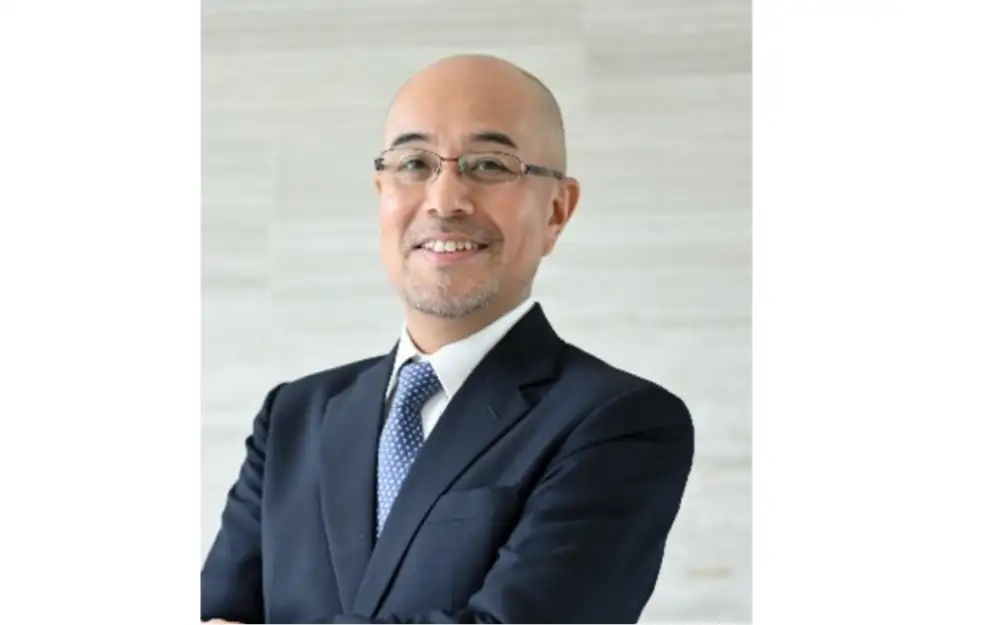
By 2030, Thailand aims to be more than just a regional player. It wants to become ASEAN's financial heartbeat: a hub that not only moves capital, but builds confidence, capability, and connection for 650 million people across Southeast Asia. This bold ambition is already taking shape - not through grand declarations alone, but through steady groundwork in infrastructure, partnerships, and most crucially, people.
"We're not just building systems," says Ichiro Kurihara, President of NEC Corporation (Thailand) Ltd (NEC Thailand). "We're building belief. We are creating what's ahead by harnessing secure digital solutions that empower businesses and strengthen financial institutions."
From Concrete to Capability
Thailand's financial transformation isn't starting from scratch. Decades of investment in roads, rail, and trade have laid the physical foundation. Now, the country is shifting from hardware to heartware - from building things to building minds.
"In the past, foreign experts came to Thailand to lay physical infrastructure," explains Kurihara. "Today, the need is different. We're focusing on the capabilities of people - and that's what will power the next decade."
This shift is especially urgent as Thailand accelerates its digital economy. As Suresh Neelakantan, Head of Financial Solution Division, NEC Thailand, puts it, "You can't scale a financial future with yesterday's workforce."
Upskilling is no longer optional. It's already underway - from retraining older workers displaced by automation, to embedding AI, data literacy and digital trust into the education system. The goal isn't just competence. It's confidence.
Grounded Progress, Global Partnerships
Thailand's technical potential is clear. Mobile penetration is among the highest globally. Its internal market is strong and its location makes it a natural nexus for regional logistics and tourism flows. Thailand's approach isn't to copy-and-paste foreign models. It's to localise them - thoughtfully, and with long-term vision. That's why public-private partnerships are crucial.
NEC Thailand, for example, isn't simply exporting Japanese tech. It's spent over 60 years co-developing solutions with Thai partners - from piloting SME supply chain finance tools, to streamlining manual lending systems, to collaborating with DEPA on nationwide upskilling.
The company is also working with universities to build fintech and AI talent pipelines, seeding the skills Thailand needs now and for the future. "Digital adoption isn't just about tools," says Suresh. "It's about trust. That takes time, partnership, and cultural fluency. We're proud of the partnerships we've builtboth long-standing and newthat continue to drive meaningful progress."
Fintech as a Force Multiplier
One of Thailand's biggest assets might be hidden in plain sight: its rapidly evolving fintech ecosystem. From AI-powered credit scoring to secure digital IDs, fintech can unlock financial inclusion for millions - including underserved rural communities and SMEs. Interoperable systems could transform banking from a months-long process into a matter of minutes. But for this potential to scale, alignment is key. Banks, regulators, startups, and citizens need a shared playbook.
"We're seeing a shift from fragmented pilots to coordinated platforms, and that's where real transformation happens," says Kurihara. "Our mission at NEC is to craft tailored solutions that meet the unique challenges Thailand is facing. We're excited to be part of this transformation."
Redefining What a Financial Hub Can Be
Thailand's 2030 vision isn't just about catching up. It's about stepping forward - on its own terms. It's not trying to become another Singapore or Hong Kong. It's aiming to become a future-ready Thailand - one that retains its cultural soul while embracing global standards.
That means helping a farmer in Khon Kaen access microcredit as easily as a trader in Bangkok opens a brokerage account. It means preparing students not just to code, but to lead in a digital-first world - in AI, English, and ambition.
"Thailand's strength lies in the balance of tradition and innovation," adds Suresh. "Together, we are creating what's ahead in financial technology."
If Thailand can match its ambitions with action and its talent with trust, it may not just reach its 2030 goalit might redefine what a financial hub looks like for the world.